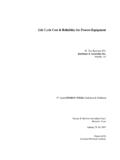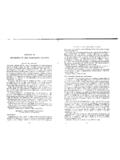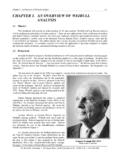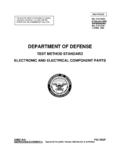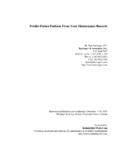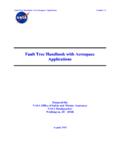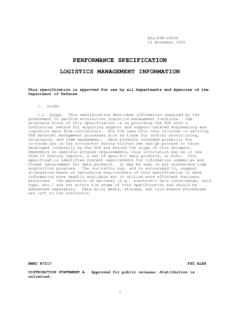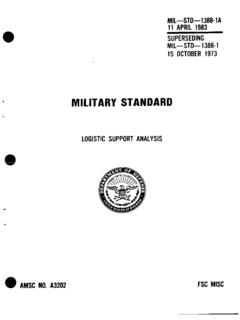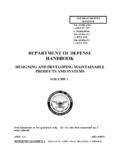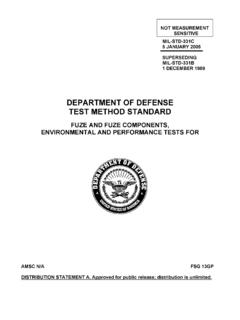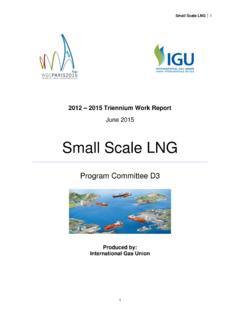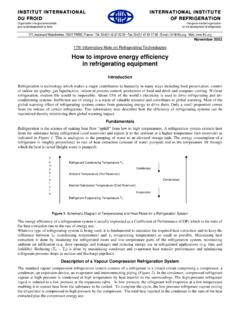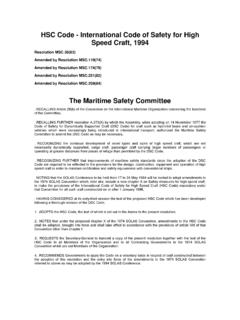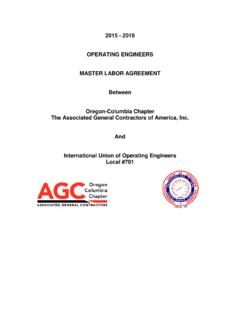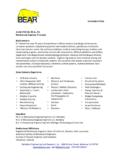Transcription of Reliability Of Critical Turbo/Compressor Equipment
1 Fifth international conference on Process Plant ReliabilityReliability Of Critical Turbo/Compressor EquipmentH. Paul Barringer, & Associates, , TexasandMichael KotlyarARCO Products CompanyCarson, CaliforniaFifth international conference on Process Plant ReliabilityMarriott Houston WestsideHouston, TexasOctober 2-4, 1996 Organized byGulf Publishing CompanyandHYDROCARBON PROCESSINGF ifth international conference on Process Plant Reliability2 Reliability Of Critical Turbo/Compressor EquipmentH. Paul Barringer, , Barringer & Associates, Inc.
2 , Box 3985, Humble, TX 77347, Phone: 713-852-6810, FAX: 713-852-3749andMichael Kotlyar, ARCO Products Company, Box 6210, Carson, CA 90749-6210, Phone: 310-816-8437, FAX: 310-816-8415 ABSTRACTA methodology is presented to evaluate and determine the necessary level of Reliability for processequipment such as large centrifugal compressors and turbines in a refinery DEFINITIONSFor repairable Equipment : Reliability is the probability that an item can perform its intended function fora specified interval under stated conditions.
3 (MIL-STD-721) Reliability is concerned with avoidingevents called failures. Reliability is calculated based on the lack of failures. Reliability involvesuncertainty as the time of future failures are unknown although failure probability exist. Reliability is alsoa function of stress applied to the system and broader definition exists for business purposes: Reliability is the probability than an item can performits intended function for a specified interval under stated conditions and achieve low long term cost ofownership for the system considering cost alternatives.
4 In business, Reliability values are not fixed butthey always change because of competitive issues, business risks, and business conditions. For example:When plant volume was sold-out last year, demand for Reliability was high as the cost for an outage wasvery severe; however, since the plant will be idle a portion of this year, demand for Reliability is muchlower as the cost for outages is also much business, the overriding Reliability issue is cost particularly the cost of unreliability for existingequipment caused by failures.
5 Failure is a deteriorating event which renders Equipment and processesas non-useful for the intended or specified purpose during a designated time interval (Barringer 1995).Failures include:Fifth international conference on Process Plant Reliability3a) Stoppage due to ) Cessation of component ) Cessation of meeting predetermined quality, quantity, and cost expectationsd) An unexpected occurrence that interrupts routine operation of a , which is the absence of failures, is discussed but failures and cost impact of failures calledunreliability are measured.
6 Downtime stopping the production process results in unreliability and definesa failure likewise, cutbacks/slow-downs in output because of Equipment is also a failure Shouldturnarounds for Equipment renewal also be counted as failures? yes because these conditions arefailures for Equipment investors. (Barringer 1996) The key issue is identification of failures and handlingthe data suspensions for different failure FOR ASSESSING RELIABILITYC ritical Equipment plays an essential role in industry because of its lack of redundancy.
7 Failure ofcritical Equipment results in major economic failure of processes generating gross margin (approximatelygross profit) for the enterprise. Lack of redundancy for Critical Equipment occurs because of the highcost of very reliable Equipment and frequently the lack of space for installation of redundantequipment even if it could be justified on the basis of Equipment is both expensive and highly reliable and lacks the opportunity to crash a few piecesof Equipment to actually verify component life.
8 The issue is to avoid the high cost of componentfailures. This requires the use of engineering projections to determine life estimates for the Equipment both art and science must be joined through the use of Reliability engineering short, Reliability assessments have similarities to the testing for professional engineering licenses. fundamentals exam, for engineers in training, has only one acceptable answer for each the practical examination, after years of experience, each question has a different answer based onthe stated assumptions for the solution.
9 For Reliability assessments, we only want one answer however, we usually must live with a series of assumptions to force an uncertain answer that isFifth international conference on Process Plant Reliability4questioned by everyone. Thus Reliability assessments yield different answers (around a common pointestimate) which are useful for guiding business Critical turbo machinery, the questions about Reliability are:a) How long will the Equipment function before failure occurs?b) What are chances a failure will occur in a specified interval for turnaround?
10 C) What is the best turnaround interval?d) What is the inherent Reliability of the Equipment ?e) What are the risks for delaying repair/replacements?f) How can assumptions about Reliability be verified?g) Where are numbers found to prepare calculations for use by work teams?h) What extension in turnaround time can be obtained by component improvements?i) Does justification exist for a spare system or spare components?These questions will be answered for two turbines and compressors which have been in service formany years and have never experienced a failure in service.
